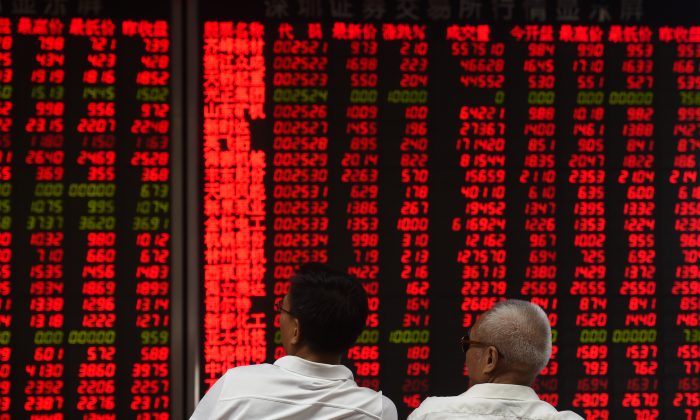FBI Says It Presumes Pensacola Naval Base Shooting ‘Was an Act of Terrorism’
News Analysis
China’s foreign exchange reserves fell by a larger than expected $9 billion, as its balance of payments surplus continues to evaporate with exports down and imports up.
China’s foreign exchange reserves peaked in June 2014 at $3.993 trillion and have fallen to $3.093 trillion in November. Although that is a very big number, China with goods exports of $2.26 trillion, or 12.8 percent of global supply, needs to continuously buy huge amounts of materials and fund working capital needs. Falling below the $3 trillion mark could raise the risk of slowing production.
Wall Street analysts had forecast only a $2 billion decrease in China’s foreign exchange reserves based on expectations for a seasonally strong trade performance with exports up $2.4 billion and imports down $3.2 billion. But China’s November exports fell by $2.4 billion and imports rose by almost $1 billion.
The Sino-U.S. trade war has cost China about $4 billion per month in exports, but that has been partially offset by $1 billion decrease in U.S. imports. China’s assistant minister of commerce, Ren Hongbin, addressed the trade negotiations in a Dec. 9 press conference in Beijing by stating, “China hopes the negotiations can keep moving forward based on the principles of equality and mutual respect and reach a result that could satisfy all parties as soon as possible.”
Facing a Dec. 15 deadline for the Trump administration to levy an additional 15 percent tariff increase on $160 billion of Chinese exports, China made a goodwill gesture on Dec. 6 by exempting “some” U.S. soybeans and pork from China tariffs.
But the trade war has not hurt the U.S. economy or undermined President Trump’s support from workers. The U.S. Bureau of Labor Statistics on Dec. 6 reported that employment rose by 266,000 in November. Gains over the past two months were revised higher, with the 6-month average up to 200,000 for the first time since April.
The State Administration of Foreign Exchange made no mention of the $7 billion trade miss when it issued a statement blaming the big decline on changes in global exchange rates and asset prices, including the value of China’s 62.64 million troy ounces of gold reserves falling from $94.65 billion in October to $91.47 billion in November.
China’s balance of payments for exports and imports peaked in 2009 at about 10 percent of GDP, but is expected to go negative next year, according to Endo Economics. The biggest challenge to China’s labor costs of about $0.60 per hour in 2002 was India and the Philippines wages. But at the current $4.80 an hour level, it is above the Philippines at $3.10; India at $2.50; and neighboring Vietnam at $3 per hour.
Rather than the usual demand for more workers driving labor costs up, Enodo points out that “China’s population is set to peak at 1.41 billion in 2023—five years earlier than official forecasts.” With some analysts predicting the 2020 birth rate could plunge from 17 million to 11 million, Enodo cautions that a shrinking workforce and rapidly greying society pose multiple social and economic challenges to China’s leaders.
Chriss Street is an expert in macroeconomics, technology, and national security. He has served as CEO of several companies and is an active writer with more than 1,500 publications. He also regularly provides strategy lectures to graduate students at top Southern California universities.
This article is from the Internet:China’s Foreign Exchange Reserves Fell by $9 Billion in November
Pentagon Chief: Delay of Ukraine Aid Did Not Have ‘Any Impact on US National Security’
